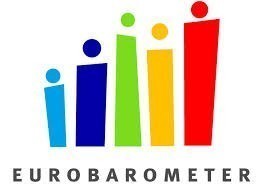Eurobarometer: 55% of Bulgarians believe in the EU
An EU study has revealed new data on Europeans' confidence in the EU, which countries are most optimistic and pessimistic about the future of the European Union, their support for the euro, their attitude to immigration, unemployment, climate change and more.
This latest Eurobarometer standard survey was conducted after the European elections between 7 June and 1 July 2019 in all 28 EU countries and five candidate countries.
In Bulgaria, 55% of citizens believe in the EU, and together with Croatia, our country has the lowest percentage in support of the euro (20%).
The average level of skepticism among European citizens is 34%, Eurobarometer results show.
The survey shows that in all but one EU Member State, the majority of those surveyed are "optimistic about the future of the EU", with the only exception being Greece (51% pessimists versus 45% optimists).
High rates of "European pessimism" are also observed in the UK (46%, while optimists are still higher - 47%), France (45% vs 50%), the Czech Republic (43% vs 54%), Italy (38% vs 56 %).
The highest percentages of optimists were observed in Ireland (85%), Denmark (79%), Lithuania (76%) and Poland (74%).
Compared to the fall of 2018, optimism for the future of the EU has increased in 24 EU Member States, especially Cyprus (65%, + 12%), Hungary (68%, + 11%), Denmark (79%, + 9%), Austria (66%, + 8%) and even "pessimistic" Greece (45%, + 8%).
However, optimism has declined in four countries: the United Kingdom (47%, -2%), Sweden (64%, -2%), the Czech Republic (54%, -1%) and Ireland (85%, -1%) .
In 27 Member States (compared to 23 countries in the fall of 2018), the majority of respondents were "satisfied with the way democracy works in the EU" with the highest rates being in Ireland (77%), Denmark (75%), Portugal (72%) and Poland (70%). At the other end of the scale are France (45%) and the United Kingdom (46%).
Greece is the only country in which the majority of respondents are not “satisfied” (60% vs. 36%).
Confidence in the EU has increased in 20 Member States, with the highest results in Lithuania (72%), Denmark (68%) and Estonia (60%). In addition, more than half of the respondents were "reluctant to trust" the EU in Malta (56%). In Bulgaria and Hungary, the results are the same (55%).
Most Europeans agree that "their voice is counted in the EU". The EU average reaches 56% (+ 7 percentage points from autumn 2018), with the highest results observed in Sweden (86%), Denmark (81%) and the Netherlands (76%).
In the EU as a whole, support for the euro is stable at 62%. The majority of respondents in 17 Member States stated that the national economic situation was good. Luxembourg (94%), Denmark (91%) and the Netherlands (90%) are the highest performing countries.
The lowest rates of positive opinions were observed in Greece (7%), Croatia and Bulgaria (both 20%).
A large proportion of EU citizens support "the free movement of EU citizens who can live, work, study and do business anywhere in the EU" (81%), with more than two-thirds of respondents in each EU Member State sharing this view, from Lithuania (94%) to Italy and the United Kingdom (both 68%).
Immigration remains the main concern at EU level by 34%, despite a sharp decline (-6 percentage points since autumn 2018). Climate change, which was ranked fifth in the fall of 2018, is now the second most important concern after a sharp increase. Three concerns receive the same assessment: the economic situation, the public finances of the Member States and terrorism (18%).
Unemployment, currently ranked seventh at EU level (12%), remains the main concern at a national level (21%, -2 percentage points), together with price/inflation/ cost of living increases (21%, unchanged) and health and social security (21%, +1).
Overall, the EC notes that a new poll on citizens' attitudes in European countries shows "best results since June 2014".






